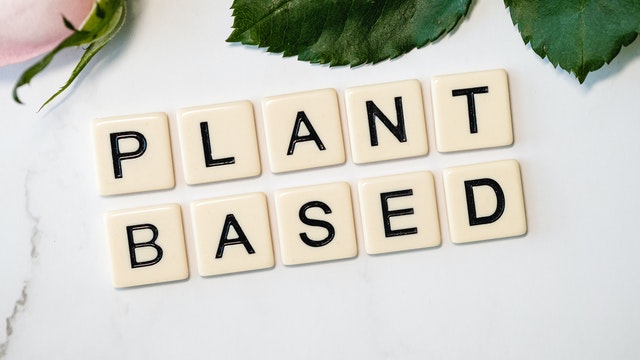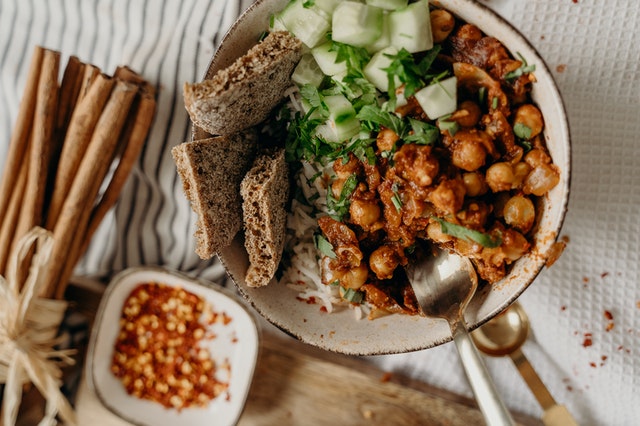
Let’s face it, being vegan is hard work. Even in the year 2021, it can still be difficult to live off of a completely plant-based diet. Whether for ethical, environmental or for health reasons, veganism has become increasingly popular in recent years. With all its popularity, there are a lot more options today for people wanting to be vegan.
Even with all these new options, it can still be quite tricky for beginners to navigate the world of veganism. Whether you’re a veteran vegan or new to plant-based diets, tips and tricks are always welcome if you’re conscious about your health. If you’ve ever wondered how you can improve your vegan diet, we’ve got you covered with these super easy 8 steps.
Get the necessary 5 portions of fruit and vegetables per day
As a vegan, fruits and vegetables are going to be a big part of your diet. As a beginner, or an inexperienced cook it can be easy to slip into a limited selection of fruits and veggies. A diet consisting of bananas, apples, and potatoes, is not a balanced diet, even though they’re all technically healthy for you. Any well-balanced diet needs variety! Make sure to have a wide range of fruits and vegetables if you want to improve your vegan diet. Don’t be afraid to get creative and experiment with plant-based foods that are new to you!
Finding alternatives is essential to keep things fun
Just because you’re a vegan, doesn’t mean you need to skip out on the fun things in life. It’s become much easier to find vegan and vegetarian options to make sure you don’t miss out. If you can’t have cow’s milk, almond, soy, or hemp are all great substitutes for you to put in your late or your vegan pancakes. If you like sweet things, there’s bound to be a cute cafe or a section in your grocery store that sells vegan options as well. Whether it’s mayonnaise or cheese, there are plenty of vegan options out there, don’t be afraid to look for them!
Supplements are your friends
Supplements are recommended for anyone who needs something but cannot immediately get it from their diet. Vegans are no different. While on a vegan diet, you can sometimes miss out on certain essential nutrients because they come from animals. Vegan diets usually lack Omega-3 fatty acids, vitamin D3, and vitamin B12 for these exact reasons. Diet specialists at omvits.com say that the key to getting what you need is finding supplements that are plant-based as well. Thankfully, today you can get everything you need without needing to get it from animals! Just remember, supplements are only an addition to your diet, you can’t rely on them for everything.
Base your meals around starch and carbohydrates
Fruits, vegetables, and supplements are great but you need something heartier. Because veganism does not include meat, it’s important to find other alternatives that will satisfy your hunger. For vegans, your best bet to make sure you actually feel full after a meal is to build your meals around starch. Carbohydrates give you energy, keep you full, and they are very easy to work with. Potatoes, rice, and whole wheat grains are very easy to dress up with vegetables and create fantastic meals. Make sure to keep things balanced and to give yourself a variety of dishes.
Find protein in unusual places
One of the main problems that people have with veganism is that they find it difficult to get enough protein. Non-vegans can easily get their protein from meat. As a vegan, you do not have this luxury so you need to get creative with your protein sources. There are plenty of plant-based sources of protein that you can find easily in most grocery stores or markets. Options range from tempeh to algae, to nutritional yeast. These all contain different kinds of proteins that your body needs to be healthy. A little research goes a long way in helping you get everything you need for your body while being vegan.
Drink plenty of fluids
Food is not the only part of your diet you need to focus on if you want to have a happier and healthier vegan experience. Drinks and fluids are a big part of diversifying your diet and making sure you stay hydrated. Drinking the required 6-8 glasses of water a day is a good start. Clean water by itself is great for the body, but you can make it even better by adding lemon slices, cucumber, or raspberries. Smoothies are another great way to introduce vitamins and minerals while taking in fluids.
Plan out and prep your meals
A common problem that many new vegans face is not being able to use their food to their fullest potential. Food waste is a huge problem and the best way to fight it, and vegan burnout is to plan your meals. Having a meal plan is a great way to ensure that you get all your necessary food groups every day and that you don’t repeat meals too often. With a meal plan, you can make the best use out of the food in your fridge and make sure you have minimal waste. Planning your meals a week in advance gives you the necessary structure to keep going!
Check with medical professionals for advice
Veganism is not for everyone. Everyone’s body is different and will react differently to different diets. A large and important part of being healthy is listening to your body. If you are interested in going vegan, are experiencing some health problems, or would like some advice, don’t hesitate to check with a doctor. Licensed professionals will lay down the law and help you with any questions you may have. Your reason for going vegan should never get in the way of your health. Whatever your reason for being vegan, making sure it’s what both you and your body want is essential.

At the end of the day, being vegan can be hard, but fun work. Getting in your necessary daily nutrients can be difficult at first, but once you get the hang of it, it can be very rewarding. Research, planning, and creativity are key. Making sure that you listen and pay attention to your body while being vegan, is the most important way you can improve your diet.










